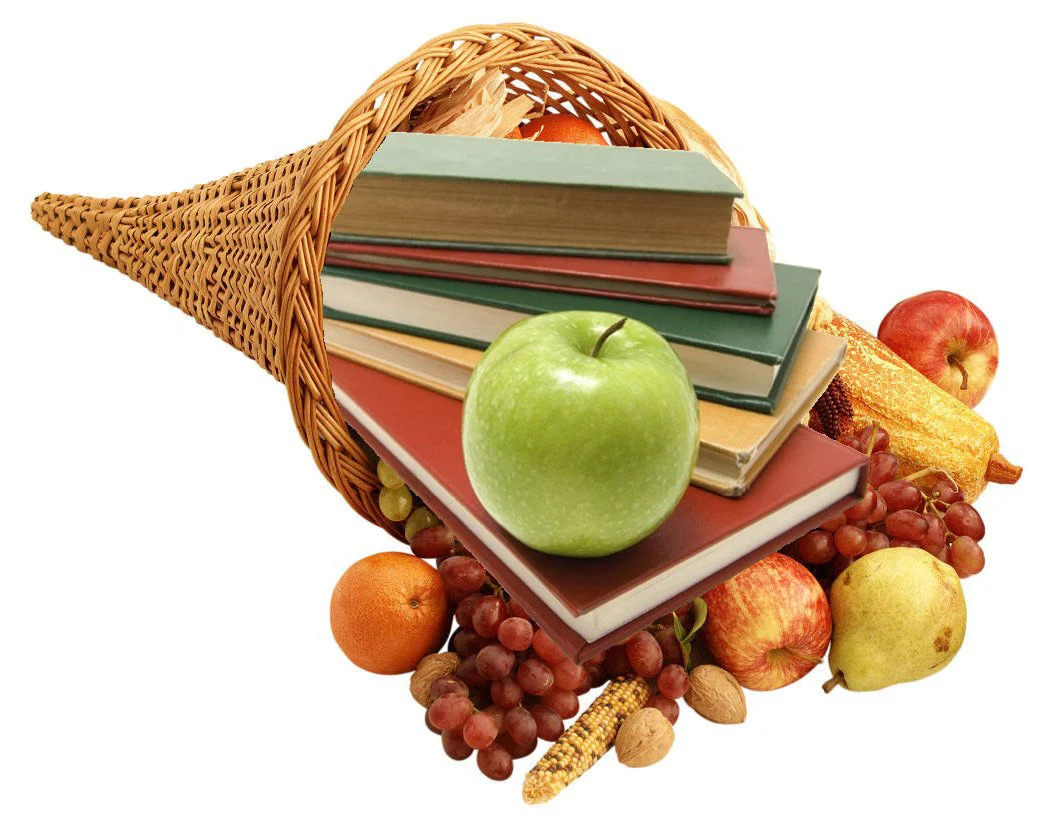
Bounty of the Harvest

Thanksgiving is a time for celebrating the harvest. The resulting bounty in my case has been small since the publication of my new novel, Mission: Soul Sacrifice, occurred at mid-year. Consequently, opportunities to sell copies of it at art festivals and book fairs have been minimal (blame Covid-19 and price inflattion) or nonexistetn other than as free books.
Print Is Not Dead
For many years such downticks in the economic and social well-being of the country didn’t matter. Non-fiction books and novels still remained solid present choices and reliable stocking-stuffers for the holidays. And the demise of printed communication Marshall McLuhan predicted didn’t happen. Sixty years later, the number of books published each year continues to skyrocket. Their mutant forms–audio, digital, e-reader, etc.–underscore this assertion.
Supply and Demand

That is a major part of the sales problem, however. There is too much product. Even before digital and audio books made inroads into the paperback share of the book market, independent and traditionally-published authors gave away the sweat and blood of their labors. At my last major book fair, for example, readers strolled up and down the aisles toting a shopping bag (sometimes, two) filled to the brim with free copies.
Similar to the citizens of Venezuala who luxuriated in the unearned cash bestowed by the country’s vast oil reserves, American readers are used to free handouts at book fairs and writers conferences. Why pay the nominal asking price when a Kindle Prime subscription offers free copies from many notable and less-known authors? Meanwhile, the books of authors who don’t participate in the Kindle program are readily available (for free) at the next local book fair or writers conference.
Pump-Priming

What to do? For many authors the solution appears to follow recent political trends. Double down. Prime the pump. By aping the deficit-spending philosophies of the Franklin Roosevelt and Ronald Reagan presidencies, authors hope to stimulate reader purchases by advertising through reading program promoters such as Goodreads and BookBub. By giving away a small number of their books, writers hope to attract a percentage among those who didn’t win the chance of satisfying their desire by purchasing their books instead.
Free Books and Marketing
Will such ploys work? The jury’s still out. Past giveaways prompt anywhere from two to ten per cent of overall participants to purchase copies of the titles in which they had entered. In some instances, that led to hundreds of purchases by readers otherwise disinclined to do so. One caveat remains, however. The success of previous presidentail pump-priming efforts occurred during a depression and a recession. These are instances where not enough goods enter the marketplace. Book publishing, on the other hand, currently experiences a surfeit of product. Too many books chase smaller, fractionated readerships. As a result, readers can be very selective in their choices which perpetuates and institutionalizes giveaways in the marketing cycle.
What Happens Next?

On a personal level, the reading public’s opinion regarding the bounty of my writing labors comes to a head after Thanksgiving. On December 1st, the winners of my Goodreads giveaway will be chosen and announced. After sending out their copies, the names and addresses of those who purchased the book will be sent to my email address and I’ll fulfill whatever orders are sent my way. Whether that’s one, a couple, a dozen, or hundreds, I’ll let you know in my blog posts and upcoming issues of my newsletter.
What do you think will happen? Let me know in the Leave a Reply section below.